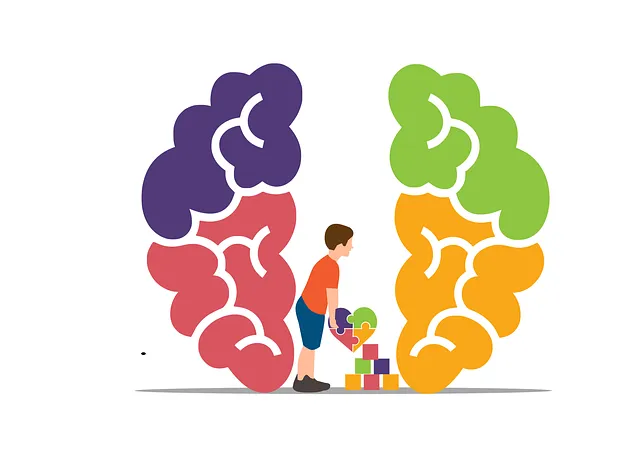Mental health policies at the Littleton Kaiser Permanente behavioral health center drive patient-centric care through evidence-based practices like stress management and cultural competency training. The center excels in holistic services, advocating for systemic change by addressing mental healthcare gaps with tailored programs. Advocacy strategies amplify diverse voices, reduce stigma, and improve access to resources, as demonstrated by successful initiatives at the Littleton Kaiser Permanente behavioral health center. Continuous policy refinement through patient feedback ensures effective solutions for positive mental health outcomes.
Mental health policy analysis and advocacy are vital components of creating a supportive societal landscape. This article explores these aspects through three key sections: understanding the profound impact of mental health policies, analyzing the services provided by the Littleton Kaiser Permanente Behavioral Health Center, and uncovering effective advocacy strategies for positive change. We also delve into measuring success through evaluation of policy interventions. By examining these aspects, we aim to contribute to a more comprehensive approach to mental health support.
- Understanding Mental Health Policy and Its Impact
- Analyzing the Littleton Kaiser Permanente Behavioral Health Center
- Advocacy Strategies for Effective Change
- Measuring Success: Evaluating Policy Interventions
Understanding Mental Health Policy and Its Impact

Mental health policy plays a pivotal role in shaping the accessibility and quality of care provided by healthcare institutions like the Littleton Kaiser Permanente behavioral health center. Effective policies can significantly impact the well-being of individuals seeking support for their mental health concerns. By implementing evidence-based practices and strategies, such as Stress Management Workshops Organization initiatives, burnout prevention programs for healthcare providers, and Healthcare Provider Cultural Competency Training, policy advocates strive to create a more inclusive and supportive environment.
These policies not only address the immediate needs of patients but also contribute to long-term improvements in mental health outcomes. They ensure that healthcare providers are equipped with the necessary tools to manage stress, recognize burnout, and deliver culturally sensitive care, thereby fostering better patient engagement and satisfaction. Ultimately, a robust mental health policy framework enables organizations like Littleton Kaiser Permanente to cater to diverse populations effectively.
Analyzing the Littleton Kaiser Permanente Behavioral Health Center

The Littleton Kaiser Permanente Behavioral Health Center serves as a prime example of an institution committed to holistic mental health policy analysis and advocacy. By offering a diverse range of services, from therapy and counseling to specialized programs focusing on resilience building and self-esteem improvement, the center demonstrates its dedication to addressing multifaceted psychological needs. The integration of cultural sensitivity in mental healthcare practice is another notable aspect, reflecting a deep understanding of the importance of tailored care for a varied patient population.
Through rigorous policy analysis, the center identifies gaps and inefficiencies in mental health services, advocating for evidence-based practices that promote community wellness. Their focus on not only treating individual symptoms but also fostering resilience and enhancing self-esteem empowers patients to navigate life’s challenges with greater equanimity. This comprehensive approach, combined with cultural sensitivity, ensures that the Littleton Kaiser Permanente Behavioral Health Center provides culturally competent care that respects and values every patient’s unique background and experiences.
Advocacy Strategies for Effective Change

Advocacy plays a pivotal role in shaping mental health policies, especially at centers like the Littleton Kaiser Permanente behavioral health center. Effective advocacy strategies involve amplifying voices from diverse communities, ensuring their unique mental health needs are addressed. This includes engaging with policymakers, community leaders, and the public to raise awareness about mental illness and its impact on various demographics.
One powerful approach is integrating Self-Awareness Exercises and Social Skills Training into advocacy initiatives. By empowering individuals with tools for self-reflection and social interaction, these strategies promote understanding and reduce stigma. This, in turn, fosters a more inclusive environment where mental health resources are accessible and accepted, driving significant positive changes in policy and practice, as exemplified by the ongoing efforts at Littleton Kaiser Permanente behavioral health center.
Measuring Success: Evaluating Policy Interventions

Measuring success is a pivotal aspect of policy analysis and advocacy for mental health initiatives. The impact of interventions at the Littleton Kaiser Permanente behavioral health center, for instance, can be evaluated using a multi-faceted approach. Quantitative methods such as tracking service utilization rates, wait times, and patient satisfaction scores provide tangible metrics. These data points offer insights into operational efficiency and client access to care.
Qualitative assessments are equally valuable, delving into individuals’ experiences, perceived benefits, and areas for improvement. This includes exploring Inner Strength Development programs, Burnout Prevention strategies, and the overall reduction of Mental Illness Stigma. By integrating feedback from service recipients, advocates can refine policies, ensuring they align with real-world needs and foster positive mental health outcomes.
Mental health policy analysis and advocacy are vital components in fostering holistic well-being. By understanding the impact of mental health policies, such as those observed at the Littleton Kaiser Permanente Behavioral Health Center, we can identify effective strategies for change. Advocacy efforts, when coupled with measured success evaluations, ensure that policy interventions are not just talked about but implemented and positively resonate within communities. This iterative process is crucial in revolutionizing mental healthcare access and quality.






